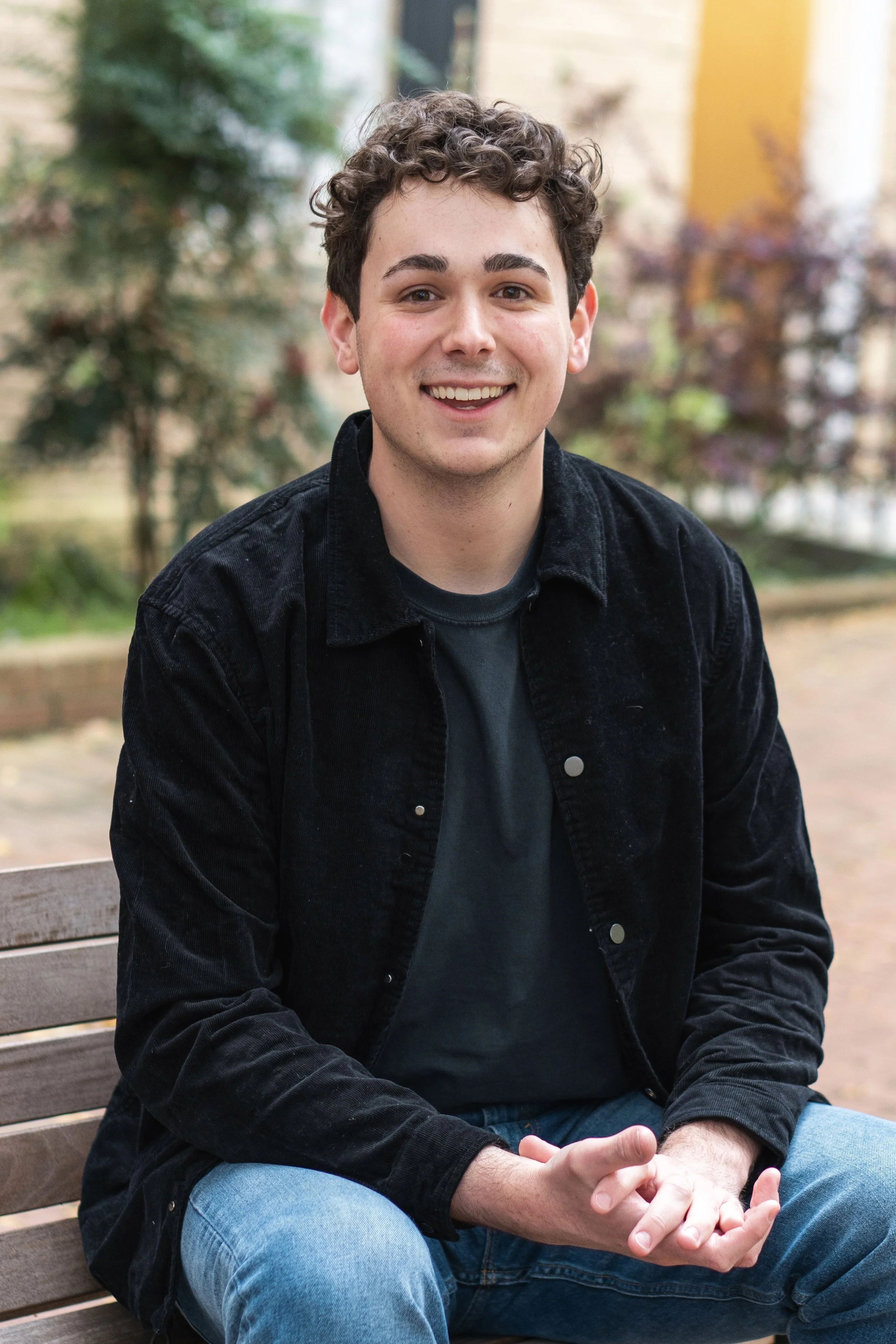Brennan D.
Photography by Jadin Nassif
If you’re reading this, I hope you feel comfortable in your own skin.
Growing up, I was always the big guy. I wore bigger shoes than my dad by the time I was in fifth grade, I passed six-foot when I was in ninth grade, and I was noticeably overweight when I graduated high school.
As a teenager, I always woke up and dressed myself to hide my biggest insecurity: my skin. It’s not that I didn’t like being the big guy, it’s that I wasn’t comfortable being the big guy. I always bought clothing that was much too big for me to hide my size. I wore conservative clothing, hoping to blend into the crowd. I rarely went out, hoping to keep myself hidden from the world. I hated how I felt in my skin.
Rather than facing my insecurities head-on, I hid from the world. I tried my best to blend in and not stand out. I hated presentations because I was the center of attention. I hated concerts and sporting events because I didn’t fit comfortably in the seats. I hated riding in small cars with my friends because I took up the most space.
As a result, I avoided these situations. I was unwilling to become more comfortable in my body and I became anxious anytime I was perceived. I did my best to avoid thinking about myself, and when I did think about myself, I put myself down constantly causing more anxiety towards growth and change. I hated every part of myself just because I was uncomfortable in my skin.
Keeping myself hidden was not going to be possible in college. I had to walk around campus, I had to interact with people outside of my comfort zone, I had to give presentations, and tell everyone where I was from and what my favorite color was. How was I supposed to do that? Something had to change.
Unfortunately, that something was me. I had to tackle my biggest insecurity that I had poorly managed for the past ten years. I knew that for me to become more comfortable in college, I had to be more comfortable with myself. I didn’t want to tug and pull at my t-shirts that had stuck to my stomach. I didn’t want to rest my chin on my hand constantly to avoid showing off my double chin. I didn’t want to feel winded after walking up a couple of flights of stairs. I wanted to feel confident. I wanted to feel healthy.
I started this change freshman year. Fortunately, I had a great support system, so I was successful. I began prioritizing my walks to class and eating healthier. Surprisingly this change felt great. Sophomore year, I continued focusing on light exercise and forming a healthier relationship with the food that fueled my body.
Now, as a senior, I’ve developed some really awesome habits that I’m proud of. Of course, there’s room for growth, but who cares. I’m finally becoming comfortable in my own skin and I want to continue feeling this way. I never want to hate myself again.
In all honesty, through all my successes, it hasn’t been that simple. I may feel better, but my social anxiety still exists. I still become very nervous before giving a presentation. I still put myself down sometimes. Being uncomfortable in my own skin when I was ten years old still affects me today, but I want each of you reading to know, I feel better.
If you’re not comfortable in your skin, I’m sorry. It doesn’t matter what way you take to reach it, I just hope you find that level of comfort one day. Though weight loss was an emphasis in my journey of finding comfort, it won’t be for everyone. No one besides you can decide when or how you’ll feel comfortable in your own body. Wherever or whenever that is for you, I believe that you’ll find it. I do, however, recommend you trust the 6’4 guy with size fourteen shoes that now drives a small car of his own when he says: you’ll know when you’ve reached that level. You’ve got this.
Brennan D., University of South Carolina
President of the Mental Health Ambassadors
Connect With Us
To follow IfYoureReadingThis at UofSC on Instagram, get in touch with our chapter, and learn about more resources available to UofSC students, visit our chapter’s homepage.
AUTHOR CONTACT
This author has opted to allow readers who resonate with their story to contact them. If you would like to speak to the author of this letter about their experience, please use the form below.

